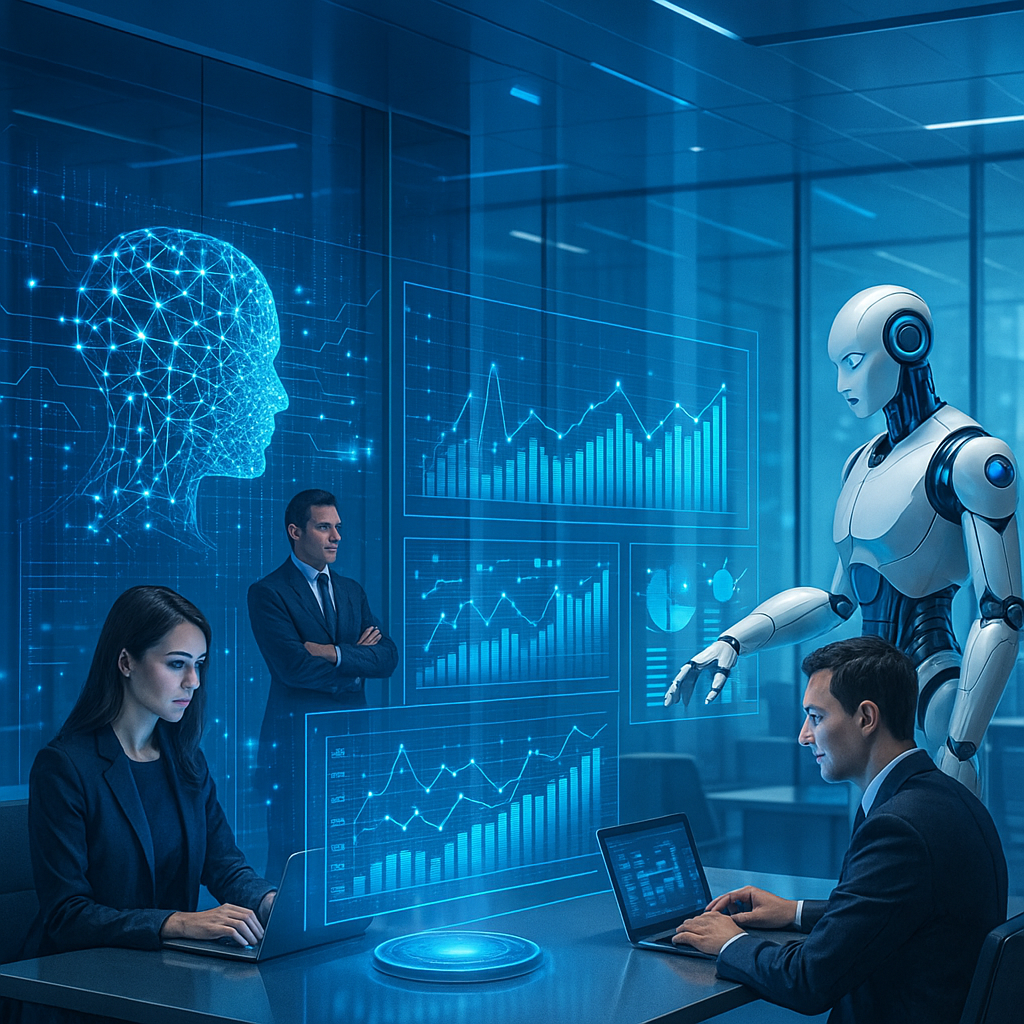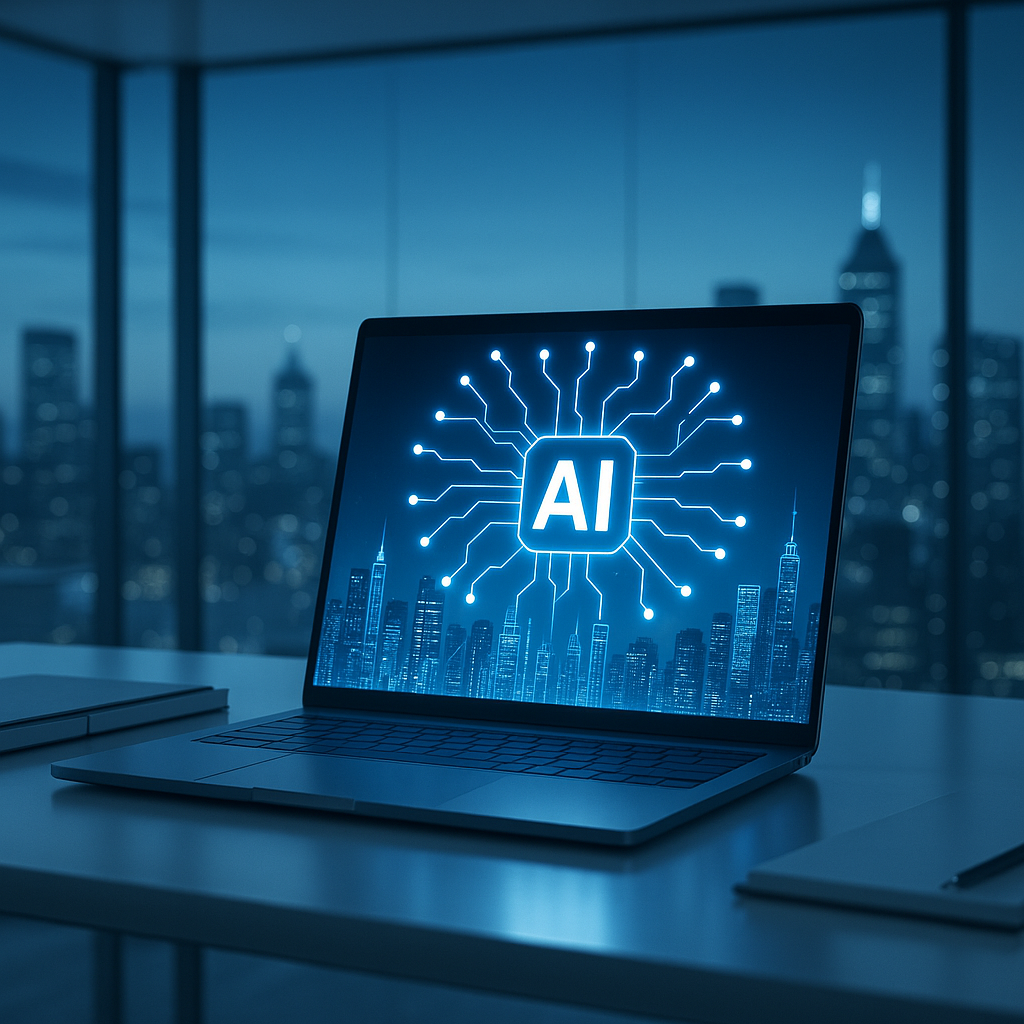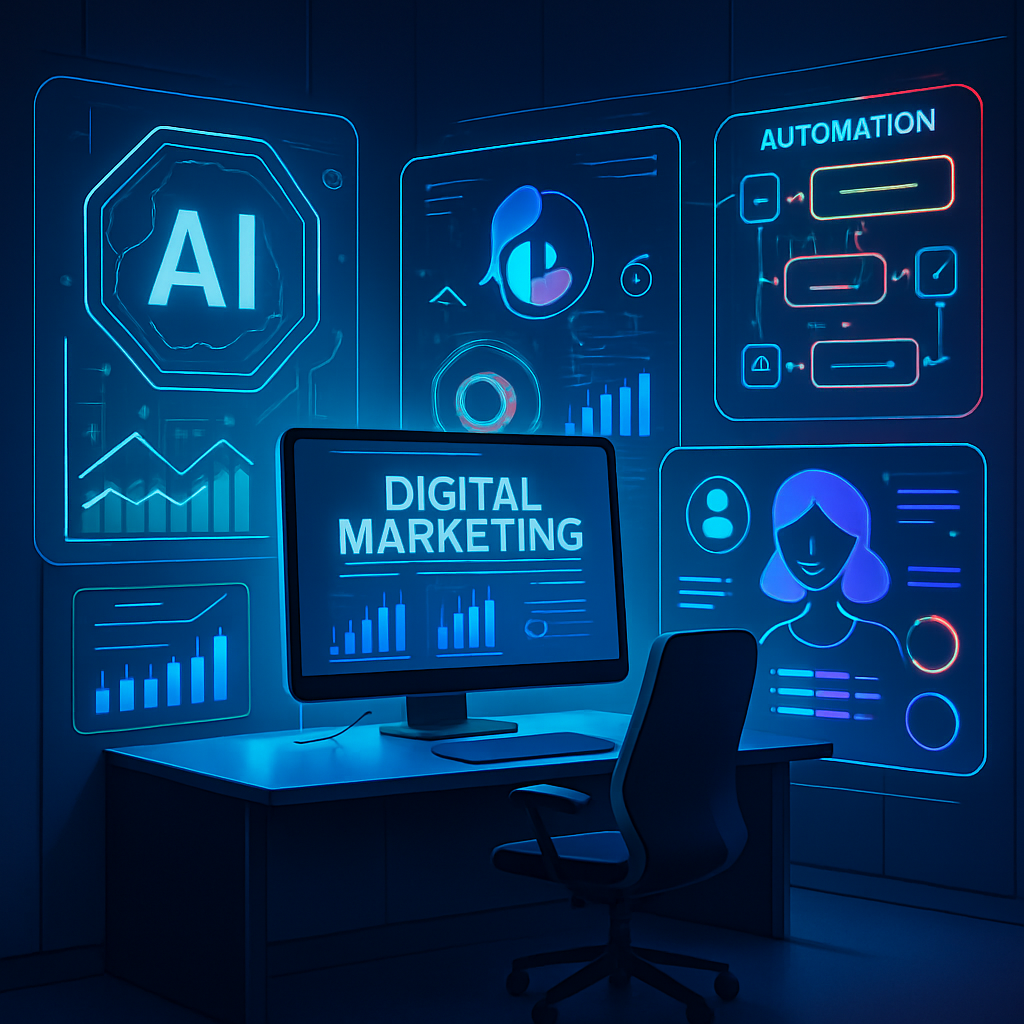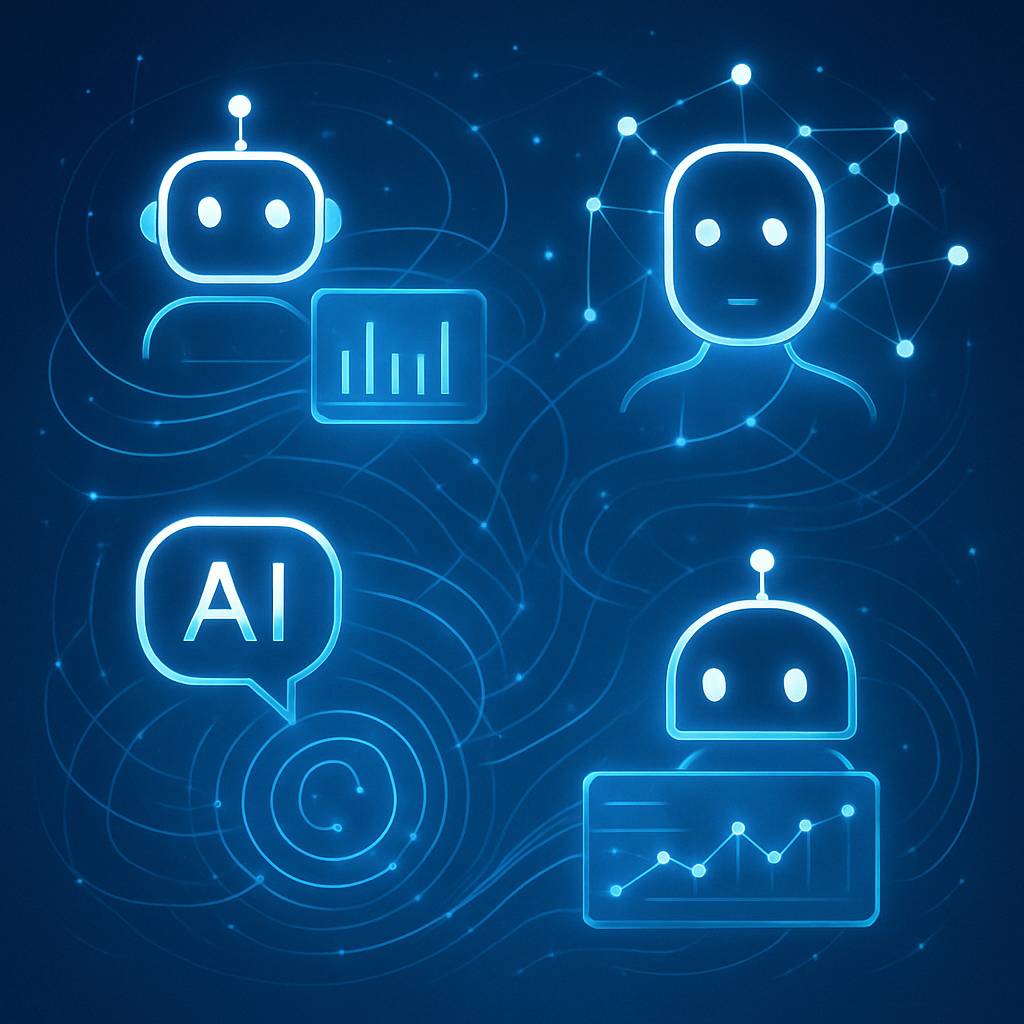
Harnessing AI Technology: Transformations in Business & Computer Science AI
Introduction: The Dawn of a New Era in AI
By August 2025, artificial intelligence has become a cornerstone of innovation, blurring the lines between business applications and computer science breakthroughs. ai technology in business now extends far beyond automation, forging new pathways to intelligence-driven decision-making, while advances in computer science artificial intelligence continue to push computational boundaries. This synergy fuels transformative innovations that are redefining industries and expanding human capabilities.
AI Technology in Business: Beyond Automation to Transformation
From Data to Strategic Advantage
Modern businesses harness AI technology not merely to automate repetitive tasks but to extract deep insights from vast data troves. Artificial intelligence systems analyze consumer behavior, market trends, and operational data in real time, enabling companies to pivot strategy with unmatched agility. For example, predictive analytics powered by AI models now anticipate supply chain disruptions before they occur, allowing proactive mitigation and reducing costly delays.
Reinventing Customer Engagement with AI
AI-driven personalization engines tailor experiences down to individual preferences, transforming how brands interact with customers. Advanced natural language processing and sentiment analysis enable chatbots and virtual assistants to hold genuinely human-like conversations, fostering loyalty and satisfaction. A global retail firm recently implemented an AI system that dynamically adjusts product recommendations based on subtle browsing patterns, boosting conversion rates by over 25% within months.
Operational Efficiency Through Intelligent Automation
Robotic Process Automation (RPA) now integrates with AI to perform complex, judgment-driven tasks across finance, HR, and logistics. Such intelligent systems manage invoices, compliance checks, and even hiring candidate screening with remarkable precision. This evolution from rule-based automation to learning systems not only cuts costs but uplifts workforce productivity by freeing employees for high-value creative work.
Computer Science Artificial Intelligence: New Frontiers of Knowledge
Advances in Machine Learning Architectures
Computer science research in artificial intelligence is advancing rapidly with novel architectures that improve learning efficiency and model interpretability. Transformer models continue to dominate language processing, while neuro-symbolic AI integrates symbolic reasoning with deep learning, enhancing meta-learning capabilities. These innovations empower AI systems to generalize from fewer examples, opening new research and application avenues.
AI for Algorithmic Fairness and Ethical Computing
Growing attention to ethical AI frameworks has catalyzed breakthroughs in detecting and mitigating biases within algorithmic systems. Computer scientists develop fairness-aware algorithms that audit decision processes, ensuring transparency and accountability in sensitive applications such as credit scoring and hiring. These efforts are crucial in building public trust as AI permeates critical societal domains.
Quantum AI: Exploring Computational Horizons
Quantum computing’s intersection with artificial intelligence presents transformative possibilities for accelerating complex problem-solving. Experimental quantum AI algorithms have demonstrated promising results in optimization and pattern recognition, catalyzing new research directions. While practical quantum AI systems remain in infancy, ongoing efforts signal a paradigm shift in computational artificial intelligence.
Bridging Business and Computer Science: Collaborative Innovations
The mutual feedback loop between business needs and computer science research energizes AI innovation. Businesses provide real-world challenges and abundant data that fuel scientific inquiry, while breakthroughs in AI theory translate into cutting-edge applications.
Consider the use of explainable AI models developed by computer scientists, which businesses adopt to satisfy regulatory requirements and enhance stakeholder confidence. Additionally, adaptive AI systems researched in academia are integrated into supply chain management platforms, dynamically responding to market fluctuations.
Case Studies: Pioneering Applications in 2025
AI-Enhanced Financial Forecasting
A leading global bank employs hybrid AI models combining deep learning with classical econometrics to generate highly accurate financial forecasts. This technology adapts to volatile markets, helping traders and risk managers make better-informed decisions, minimizing losses and uncovering novel investment opportunities.
Smart Manufacturing with Autonomous AI Agents
Manufacturers deploy autonomous AI agents across assembly lines to monitor equipment health, predict failures, and reschedule production in real time. This system reduces downtime by 40%, improves product quality, and streamlines resource allocation, showcasing AI technology’s transformative impact on industrial operations.
AI-Driven Drug Discovery Platforms
Pharmaceutical companies leverage AI techniques developed from cutting-edge computer science research to accelerate drug discovery. Machine learning models simulate molecular interactions and predict compound efficacy, drastically shortening the timeline from target identification to clinical trials.
Emerging Trends Shaping the AI Landscape
AI Democratization and Accessible Tools
Open-source AI frameworks and cloud-based AI-as-a-Service platforms make advanced AI technology accessible to startups and smaller enterprises. This democratization fosters innovation diversity and accelerates AI adoption beyond traditional tech hubs.
Multimodal AI Systems
Integrating data across modalities—text, images, audio, sensor inputs—multimodal AI systems emulate richer understanding and contextual awareness, broadening application scopes such as multimodal virtual assistants and advanced diagnostic tools.
Human-AI Synergy
The future of AI emphasizes collaboration between humans and intelligent systems, not replacement. Enhanced by AI, human decision-making becomes augmented, creative processes stimulated, and problem-solving accelerated, marking a qualitative leap toward symbiotic artificial intelligence.
Conclusion: A Transformative Journey Unfolding
AI technology in business and computer science artificial intelligence are advancing in tandem, driving transformative innovations reshaping the global landscape in 2025. From strategic business insights and personalized customer experiences to pioneering research breakthroughs and ethical frameworks, ai is not simply a tool but a transformative force. The ongoing integration of AI across domains heralds an era where intelligence—both human and artificial—coalesces to unlock unprecedented potentials.







